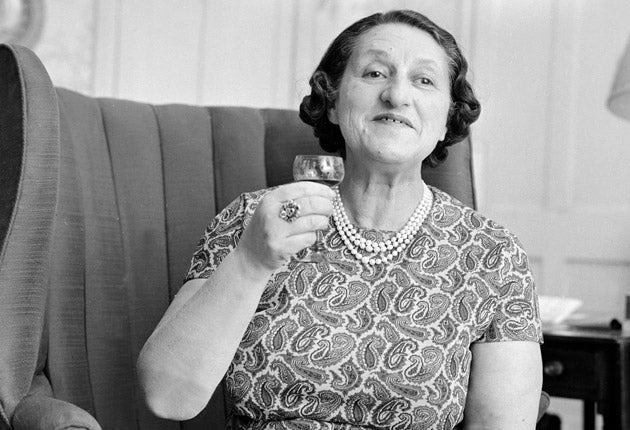Invisible Ink: No 74 - Caryl Brahms and S J Simon

How did the English cheer themselves up during wartime?
One of the ways was by turning to the sprightly comic novels of this unlikely duo. Caryl Brahms was born into a Sephardic Jewish family in Croydon; S J Simon was born in Manchuria. She trained as a musician and wrote ballet criticism; he was a genius bridge player, winning tournaments, writing books on card systems and becoming the bridge correspondent of The Observer, when there were such things. Caryl (née Doris Abrahams) Brahms and "Skid" (né Simon Skidelsky) met in a hostel and shared the same ridiculous sense of humour. First they wrote captions for David Low's political cartoons in the Evening Standard, then they graduated to crime novels.
A Bullet in the Ballet (1937) was the result of a delayed meeting and a conversation over a cup of tea. Brahms did the ballet bits and Skid wrote the parts that involved detection. A dancer is shot in the head during a production of Petrouschka, and Detective Inspector Quill, "the Scotland Yard Adonis", is dispatched to uncover the killer, only to find that the corps de ballet is filled with vipers. The novel's first line is: "Since it is probable that any book flying a bullet in its title is going to produce a corpse sooner or later – here it is." It was followed by a ballet-themed sequel, Casino for Sale, the following year. Both feature the high-living impresario Vladimir Stroganoff, a hilarious creation who deserved his own series. Curiously, my edition of A Bullet in the Ballet suggests that I might also enjoy reading A Survey of Russian Music, which may be an indication of the thoroughness of Brahms's research.
Envoy on Excursion is a European farce with Nazis, somewhat akin to The Lady Vanishes, and Six Curtains for Stroganova concludes the set with the same characters. Farce should never outstay its welcome, and all the books are short but packed with merriment.
The duo also wrote excellent historical farces, the best being No Bed for Bacon, which was very obviously an inspiration for Shakespeare in Love, and Don't, Mr Disraeli, which includes virtually every clean Victorian joke you can think of, plus a cameo by the Marx Brothers.
There are other volumes, and assorted short stories featuring the Brahms and Simon characters, but these are out of print. Somebody, please republish! After Simon's death, Brahms continued writing and adapting farces with Ned Sherrin.
Join our commenting forum
Join thought-provoking conversations, follow other Independent readers and see their replies
Comments
Bookmark popover
Removed from bookmarks